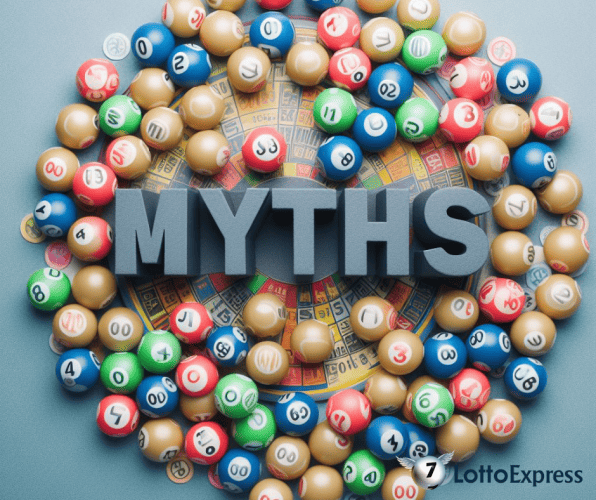Lottery myths abound, clouding the judgment of hopeful players eager to strike it rich. These lottery misconceptions can distort the realities of playing, leading individuals to make ill-informed decisions about their odds and strategies. In this engaging exploration, we’ll be debunking lottery myths that have lingered for too long, shedding light on lottery facts grounded in statistics and truth. By understanding the true nature of the lottery system, players can navigate this game of chance with greater wisdom. Join us as we demystify these pervasive fallacies and equip you with the knowledge you need for your next ticket purchase.
The world of lotteries is seeped in intrigue and excitement, yet it’s also riddled with misunderstandings and outdated beliefs. From assumptions about likelihoods to notions of luck and strategy, numerous fallacies can lead players astray when they engage in this popular game of chance. As we delve into the various myths surrounding lotteries, we aim to clarify these persistent misconceptions, and present essential information for players eager to participate responsibly. Our journey into the realm of lottery truths will arm you with knowledge about the actual odds of winning, the mechanics behind ticket purchases, and what it means to play the lottery. Prepare to challenge your preconceptions and embrace a clearer perspective as we unravel the threads of misbelief woven throughout the lottery landscape.
Debunking Common Lottery Misconceptions
One of the most widely believed lottery misconceptions is that purchasing multiple tickets will significantly boost your odds of winning. Many hopeful players think that buying more entries equates to better chances in the lottery game. However, this oversimplified belief overlooks the reality of lottery odds. For example, if a lottery offers one in a million odds, buying ten tickets only marginally increases your chances to ten in a million. The stark reality is that the chance of winning remains extraordinarily low, reminding us that the lottery is primarily a game of chance.
Additionally, players often hold onto the notion that certain numbers are inherently luckier than others, such as their birth dates or anniversaries. This belief contradicts the fundamental principle of random number selection employed in lotteries. Each number combination possesses an equal opportunity of being drawn, thereby nullifying any perceived lucky advantages. Consequently, relying on such numbers may lead to unwise decisions and missed opportunities. By debunking these common lottery misconceptions, potential participants can navigate the lottery landscape with clarity and a more critical perspective.
Understanding Lottery Odds and Realities
Understanding lottery odds is crucial for a realistic approach to playing. Commonly, new players might think that playing the same set of numbers increases their winning chances. This belief is rooted in lottery myths that suggest a pattern can be detected over time. However, the random nature of lottery draws means that past results have no influence on future outcomes. Each draw is an independent event, nullifying the idea of ‘hot’ or ‘cold’ numbers and emphasizing the importance of viewing lottery participation as a form of entertainment rather than an investment.
Moreover, the misconception that winning the lottery will eliminate all life problems is prevalent. While it’s undoubtedly tempting to imagine sudden wealth solving financial woes, research shows that many lottery winners face unexpected challenges. From managing newfound riches to dealing with social repercussions, the reality for many winners is far from utopian. Understanding these realities helps potential lottery players set realistic expectations and graces them with the insight that the lottery should not be seen as an escape from life’s challenges, but rather as a game meant for enjoyment.
Frequently Asked Questions
What are some common lottery misconceptions that players should know?
Common lottery misconceptions include the belief that purchasing multiple tickets significantly increases your odds, that certain numbers are luckier than others, and that lotteries serve as a tax on the hopeful. Understanding these lottery myths is crucial for making informed choices when participating in lotteries.
How can understanding lottery facts help debunk lottery myths?
By exploring accurate lottery facts, players can debunk lottery myths such as the idea that any number can be luckier than another or that there’s a strategy to predict outcomes. A clear grasp of the odds and the random nature of lotteries helps mitigate unrealistic expectations and encourages responsible gaming.
| Myth | Explanation | Reality |
|---|---|---|
| Playing More Tickets Increases Your Odds | Many believe buying multiple tickets boosts their chances of winning significantly. | While it does increase odds, the change is minimal. For example, buying 10 tickets out of 1,000,000 is still just 10 in 1,000,000. |
| Certain Numbers Are Luckier Than Others | Players often pick ‘lucky numbers’ based on personal significance. | Every number combination has equal chances; no number is luckier than another. |
| Lotteries Are a Form of Taxation | Some see lottery revenue as a tax for hopeful players. | Lotteries are voluntary, unlike taxes which are mandatory. |
| You Can Manipulate the Lottery System | Beliefs in strategies or software that increase odds are common. | Lotteries are designed to be random, and there’s no legitimate way to manipulate outcomes. |
| Winning the Lottery Solves All Your Problems | Winning is often thought to bring instant happiness and security. | Large wins can lead to issues like fame and financial mismanagement, not guaranteed happiness. |
Summary
Lottery myths can significantly alter perceptions and expectations of the game, and navigating through these misconceptions is crucial for any player. Understanding the reality behind the lottery can help individuals make informed choices before engaging in this popular form of gambling. Players should recognize that while the allure of big wins is enticing, it is vital to approach the lottery with realism and caution. The table above details some of the most common myths associated with lotteries, showcasing how they can mislead hopeful players. Debunking these myths fosters a clearer view of what lotteries are—a game of chance that should be played responsibly for entertainment, not as a guaranteed pathway to wealth.
